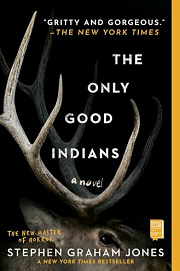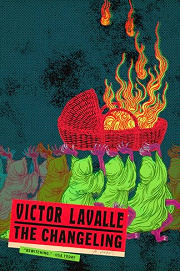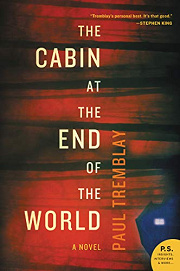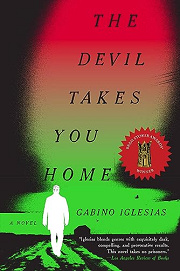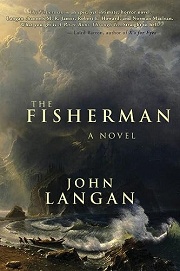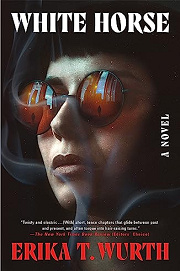Share your thoughts in a quick Shelf Talk!
The Only Good Indians by Stephen Graham Jones
Years after a fateful hunt, four friends find that what they left behind never stopped stalking them. On the Blackfeet reservation and beyond, guilt curdles into something with antlers and intent. Visceral, haunting, and deeply human, The Only Good Indians tightens like a snare and doesn’t let go.
Have you read this book? Share what you liked (or didn’t), and we’ll use your answers to recommend your next favorite read!
Love The Only Good Indians but not sure what to read next?
These picks are popular with readers who enjoyed this book. Complete a quick Shelf Talk to get recommendations made just for you! Warning: possible spoilers for The Only Good Indians below.
In The Only Good Indians, did you enjoy ...
... modern folklore invading everyday life to turn family bonds into a nightmare?
The Changeling by Victor LaValle
If the Elk-Headed Woman’s intrusion into reservation life and the way Lewis’s home becomes a hunting ground grabbed you, you’ll love how The Changeling makes old-world fairy lore stalk a very real New York. Like the fallout from that ill-fated elk hunt, Apollo Kagwa’s domestic happiness curdles into terror after a shocking act shatters his family, sending him on a surreal, street-level quest through parks, islands, and hidden communities. LaValle blends myth and smartphone-age reality with the same unnerving creep you felt in the gym showdown with Denorah, turning fatherhood and folklore into razor-edged suspense.
... tight, shifting perspectives that keep you questioning what’s real?
The Cabin at the End of the World by Paul Tremblay
If you liked how The Only Good Indians kept changing angles—moving from Ricky’s doomed night in the bar parking lot to Lewis’s unraveling at home, then to Gabe, Cass, and finally Denorah’s desperate stand—Tremblay’s nerve-fraying home-invasion tale is a perfect fit. The narrative hops between captors and captives inside a single cabin, ratcheting dread the way the sweat lodge scene tightened around Gabe and Cass. The result is claustrophobic, destabilizing horror where every point of view might be right—and wrong—at the same time.
... relentlessly bleak, violent horror threaded with the supernatural and vengeance?
The Devil Takes You Home by Gabino Iglesias
If the novel’s brutal tone—Ricky’s sudden, senseless death; Lewis’s spiral and Peta’s fate; the merciless hunt by the Elk-Headed Woman—hooked you, Iglesias delivers that same ferocity. Mario accepts a cartel job that becomes a blood-soaked odyssey, where saints, curses, and visions brush up against bullets and betrayal. Like the way old sins from that illegal elk hunt won’t stay buried, every step Mario takes drags more darkness into the light. It’s grim, propulsive, and unflinching, with splashes of the uncanny that hit like antlers in the dark.
... grief-driven horror that burrows into the mind as much as the supernatural?
The Fisherman by John Langan
If the book’s psychological pressure—the guilt the men carry from the elk slaughter, Lewis’s paranoid trying-to-make-it-right, and the crushing inevitability stalking Gabe and Cass—stayed with you, The Fisherman channels that same ache. Two widowers find a cursed upstate New York river and a legend promising reunions with the dead. As the story deepens, grief and obsession tangle until reality feels as thin as the gym’s final standoff with Denorah. Langan pairs cosmic dread with intimate sorrow to create horror that lives in your head long after the last page.
... Indigenous-rooted hauntings where old stories exact a contemporary price?
White Horse by Erika T. Wurth
If the Elk-Headed Woman’s vengeance—born from a broken boundary during that illicit hunt—resonated, White Horse taps a similar vein of cultural memory and reckoning. When Kari inherits a mysterious bracelet tied to her missing mother, visions and an insistent spirit start prying at family secrets she’d rather leave buried. Like the way the past keeps tracking Gabe and Denorah right onto the basketball court, Wurth’s ghosts don’t just scare—they demand answers. It’s sharp, contemporary horror grounded in Indigenous voices, where every revelation cuts both ways.
Unlock your personalized book recommendations! Just take a quick Shelf Talk for The Only Good Indians by Stephen Graham Jones. It’s only a few questions and takes less than a minute.
